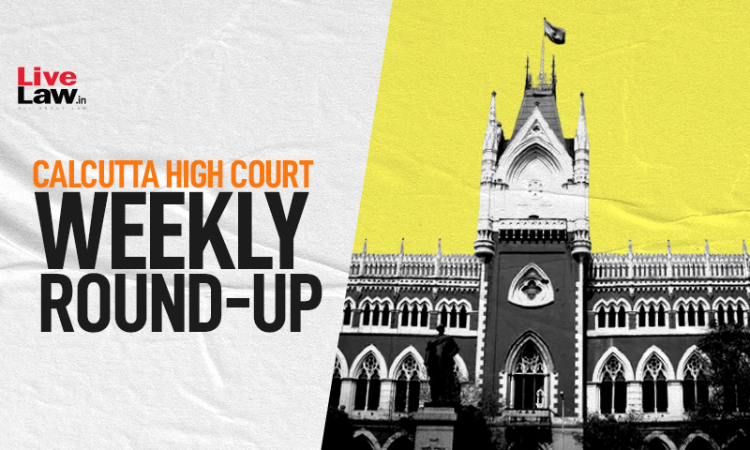Calcutta High Court Weekly Round-Up: August 28 To September 3, 2023
Srinjoy Das
3 Sept 2023 8:46 PM IST

Next Story
3 Sept 2023 8:46 PM IST
NOMINAL INDEXRakesh Sha vs The State of West Bengal 2023 LiveLaw (Cal) 240Avinaba Dutta & Another v State of West Bengal & Ors. 2023 LiveLaw (Cal) 241Satyendranath Halder And Ors Vs State Of West Bengal And Ors. 2023 LiveLaw (Cal) 242Suvendu Adhikari v State of West Bengal 2023 LiveLaw (Cal) 243Apurba Biswas & Ors. v. The State of West Bengal & Ors 2023 LiveLaw (Cal) 244Sri...
